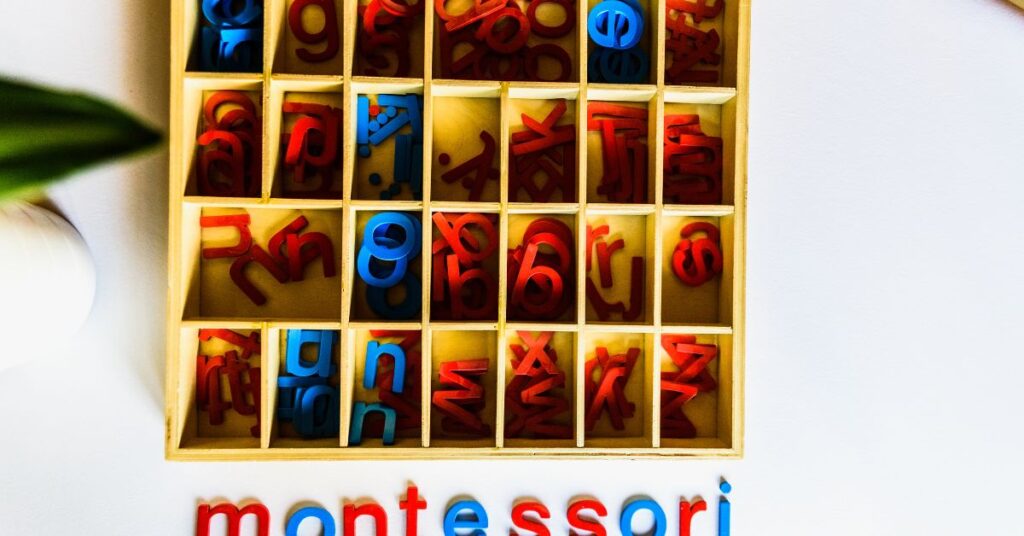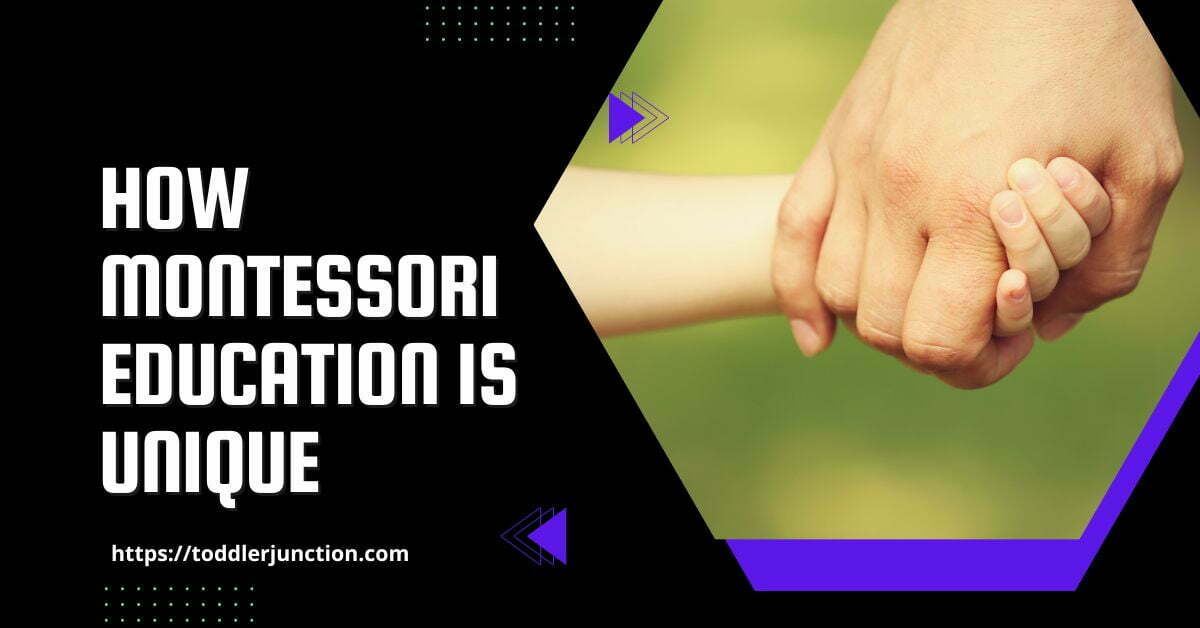Montessori education is a child-centered educational approach that is based on scientific observations of children. Montessori education is unique in its approach and offers many benefits for children. In this section, we will discuss what Montessori education is and how it is beneficial for children.
Origins
Montessori education is named after its founder, Dr. Maria Montessori, the first woman to receive a medical degree in Italy.
Dr. Montessori observed that children naturally want to learn and that they are most successful when learning in a supportive, nurturing environment that honors their individual interests and abilities.
Building on this foundation, she developed a unique approach to education that has been used all over the world for over a century.
The Montessori method is characterized by mixed-age classrooms, student-centered learning, and an emphasis on hands-on experiential learning.
Today, there are hundreds of thousands of Montessori schools in over 100 countries serving children of all ages, from infancy through adulthood.

Maria Montessori
Maria Montessori (1870-1952) was an Italian physician, educator, and innovator, acclaimed for her educational method that builds on the way children naturally learn. Montessori’s approach has been utilized successfully all over the world in public and private schools, as well as in daycare and home settings.
Born in Chiaravalle, Italy in 1870, Maria Montessori was the first woman to graduate from medical school in 1896. After completing her studies, Montessori worked with children who had developmental disabilities.
These experiences led her to develop a new way of observing and understanding children’s natural development and learning abilities. In 1907, she opened the first “Casa Dei Bambini” or “Children’s House” in Rome. This was a place where children from all social backgrounds could come to learn using her unique educational method.
The Montessori Method has since spread all over the world and is used in both public and private schools, as well as in daycare and home settings.
How is Montessori education unique?
Montessori education is unique in its approach to early childhood education. Montessori education is founded on the principle that children are natural learners. This means that children are able to learn best when they are given the opportunity to explore and discover the world around them.
Child-centered
In a Montessori classroom, children learn at their own pace and in their own way. This type of education is tailored to each individual child, allowing them to progress at their own speed.
Montessori education is also very hands-on. Children are encouraged to explore and learn through experience, rather than simply being told what to do. This allows them to really understand the concepts they are learning and makes the learning process more enjoyable.
Montessori classrooms are typically very calm and orderly environments, which helps children focus on their learning. The classrooms are also usually very well-equipped, with plenty of interesting materials for the children to explore.
All of these factors combine to create an environment in which children can thrive and reach their full potential.
Individualized learning
In a Montessori classroom, there are no grades, no assignments, and no punishments. The only goal is to foster each child’s natural love of learning. This is accomplished through individualized instruction and a curriculum that emphasizes hands-on experiences.
Montessori classrooms are designed to be stimulating and inviting, with plenty of opportunity for movement and exploration. Classrooms are divided into areas for different activities, such as practical life skills, math, language arts, cultural studies, and science. Within each area, there is a progression of materials and activities that allow children to learn at their own pace.
Montessori teachers are not merely instructors; they are trained observers who carefully assess each child’s strengths and interests. They then use this information to create unique lesson plans that challenge and engage each individual learner.
Hands-on learning
In a Montessori classroom, everything is designed to foster hands-on learning. From the materials to the way the environment is set up, children are encouraged to engage with their surroundings and learn through exploration.
Materials in a Montessori classroom are often referred to as “multi-sensorial,” meaning they can be experienced through more than one sense. This helps children learn more effectively since they can engage more than one sense at a time. For example, a Montessori math material might be textured so that a child can trace its shapes with his fingers while also looking at it and saying its name out loud.
The Montessori environment is also designed to promote independence and allow children to move freely around the room. Classrooms typically have low shelves so children can easily reach materials, and there are usually no desks or chairs – allowing children to choose how they want to learn.
Mixed-age classrooms
One of the hallmarks of Montessori education is the mixing of ages in a single class. This is in contrast to the more traditional approach of grouping students by grade level.
While some people might see this as chaotic, Montessori educators believe that it’s a natural way for children to learn. After all, in the real world, people of all ages interact on a daily basis.
In a Montessori classroom, older students serve as mentors to younger ones. They help them with tasks and projects, and they model positive behavior. This promotes a sense of community and responsibility among the students.
Mixed-age classrooms also allow children to work at their own pace. If a child is struggling with a concept, he or she can get help from classmates or the teacher without feeling embarrassed or behind. And if a child masters a concept quickly, he or she can move on to something else without getting bored.

The benefits of Montessori education
Promotes independence
The Montessori method of education was developed over a century ago by Dr. Maria Montessori, the first woman in Italy to become a doctor. The Montessori method is based on the philosophy that children are born with a natural desire to learn.
This philosophy is evident in the way that Montessori classrooms are set up, with materials and activities that encourage children to explore and learn at their own pace. Because of this, Montessori classrooms often have a more relaxed atmosphere than traditional classrooms, and children are given more freedom to move around and choose what they want to do.
One of the goals of Montessori education is to promote independence in children. This means that from a young age, children are encouraged to do things for themselves, such as dressing and feeding themselves, and they are also given opportunities to make choices and solve problems. This helps them to develop confidence and a sense of self-direction, which will be beneficial as they grow older.
Develops critical thinking and problem-solving skills
Montessori education encourages children to think for themselves and develop their own solutions to problems. This helps them to develop critical thinking and problem-solving skills that they can use throughout their lives.
Montessori education also teaches children how to be independent and self-motivated. This is because Montessori classrooms are designed to allow children to work at their own pace and choose their own activities. This means that children are more likely to be engaged in their learning and motivated to do well.
As well as developing essential life skills, Montessori education has been shown to have a number of other benefits. These include:
– improved academic performance
– better social skills
– higher levels of creativity
– greater independence
– better self-esteem
Encourages creativity
Montessori education is often lauded for its focus on encouraging creativity in children. This is done in a number of ways, including:
-Allowing children to explore their interests and follow their own curiosities
-Encouraging children to be independent thinkers
-Fostering a love of learning in an environment that is stimulating and engaging
All of these factors work together to create an environment in which children can thrive and reach their full potential.
Montessori education in the 21st century
In a Montessori classroom, children are free to move about and choose their own activities. They learn at their own pace and work on individualized lesson plans. This type of education is unique in that it allows children to learn in a way that is best for them.
Technology in the classroom
Technology is everywhere and it’s no surprise that even our youngest students are using tablets and smartphones in the classroom. While some may argue that this is detrimental to their social and emotional development, others believe that it’s a necessary evil in order to compete in the 21st-century economy.
Montessori schools have always been at the forefront of educational innovation and many are now incorporating technology into the classroom in a way that enhances, rather than replaces, traditional teaching methods.
Some of the ways Montessori schools are using technology include:
-Using iPads and tablets as education tools. Students can use apps to learn about everything from math and science to language arts and history.
-Creating digital portfolios. These allow students to showcase their work in a format that can be easily shared with parents and teachers.
-Using online learning platforms. These provide an engaging way for students to learn both inside and outside the classroom.
-Integrating social media. This allows students to connect with their peers around the world and collaborate on projects.
The global Montessori community
Montessori education is practiced in over 110 countries and on every continent. It is estimated that there are 22,000 Montessori schools worldwide, serving approximately 1.1 million children.
The Montessori community is strong and growing. With research showing the effectiveness of the Montessori approach, more and more families are seeking out Montessori schools for their children. As a result, the demand for trained Montessori educators is also on the rise.


